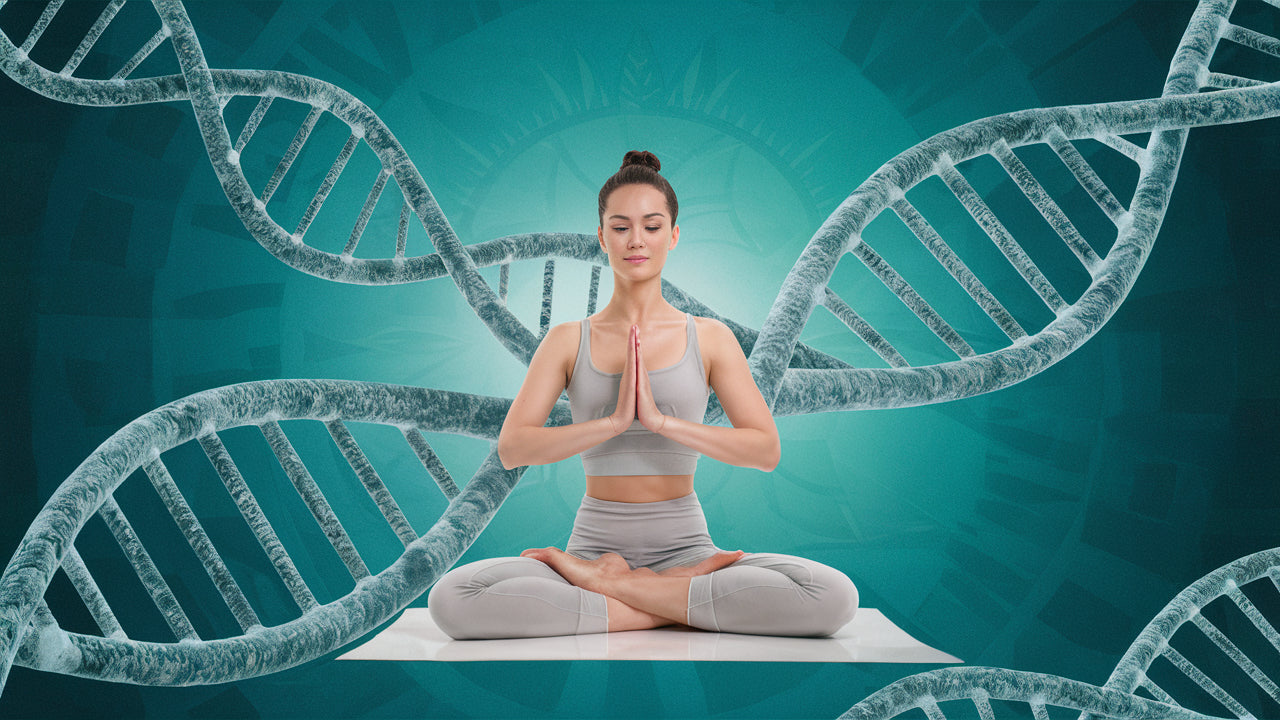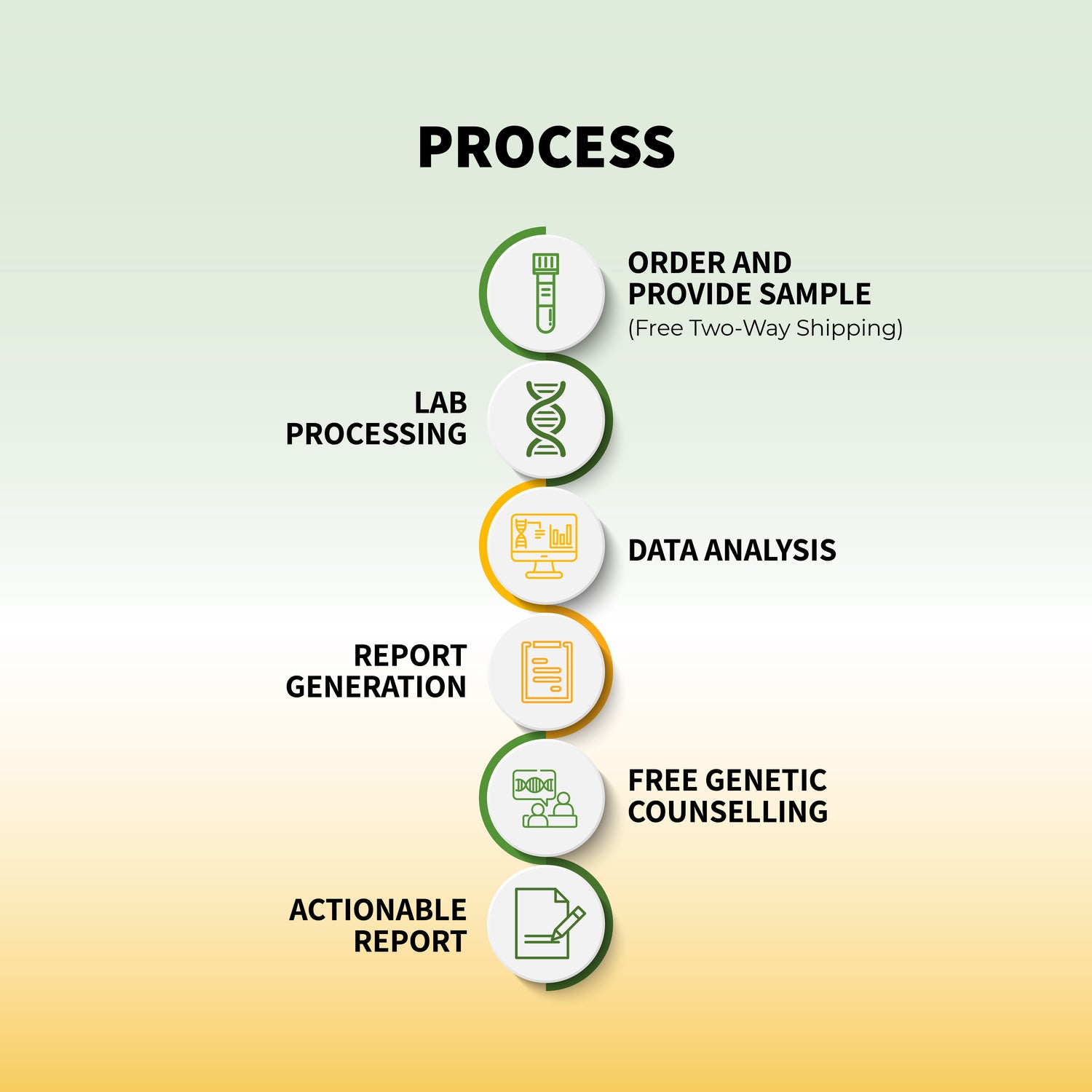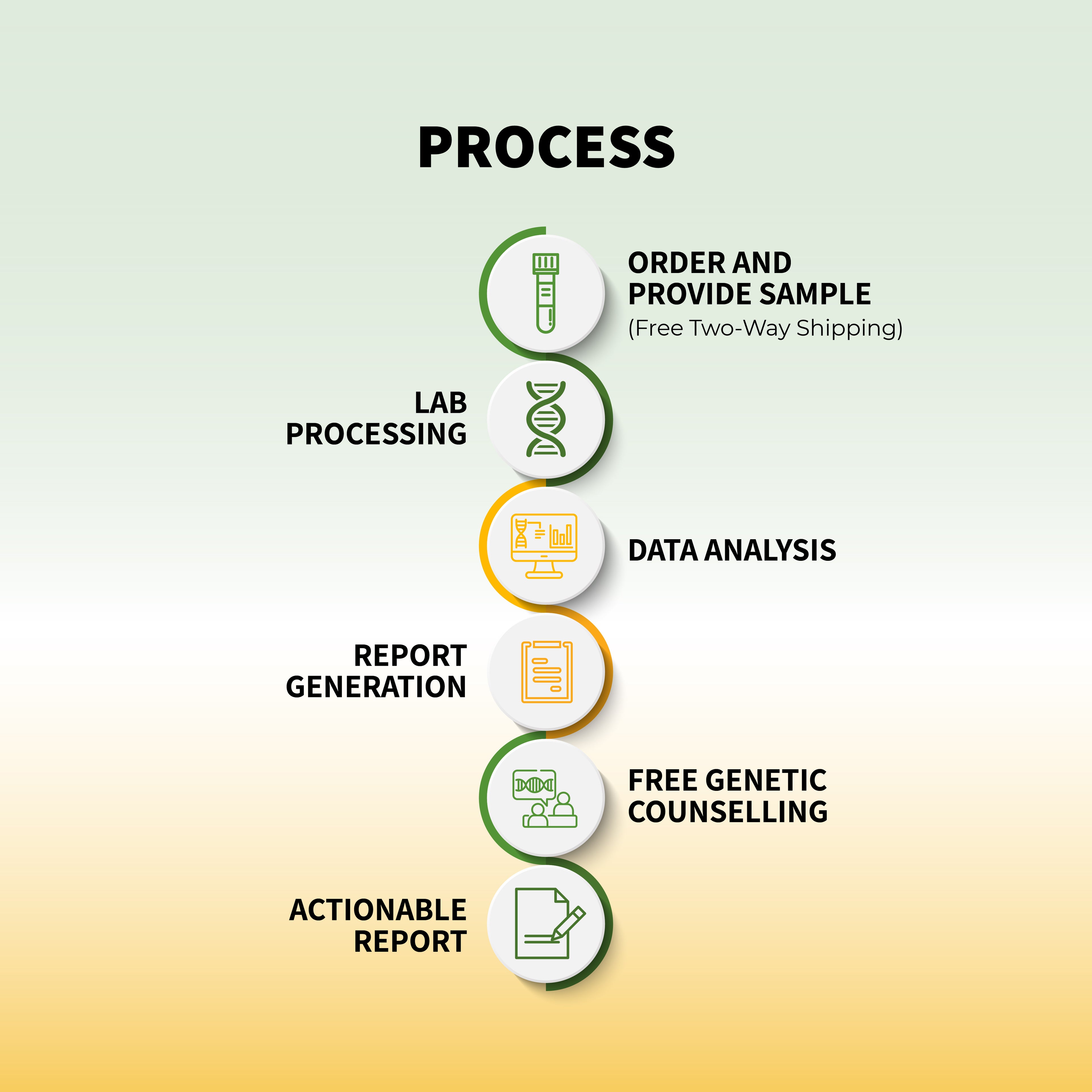Yoga, the ancient Indian practice that harmonizes mind and body, has taken the world by storm. From studios in bustling cities to serene retreats, benefits of yoga and popularity shows no signs of slowing down. But what exactly is yoga, where did it come from, and how does it relate to the cutting-edge field of genetic testing? Let's dive in.
The Origins of Yoga
Yoga's roots stretch back thousands of years to ancient India. It's believed to have emerged from the Indus-Sarasvati civilization around 3000 BCE. Originally a spiritual discipline, yoga combines physical postures (asanas), breathing exercises (pranayama), meditation (dhyana), and ethical principles (yamas and niyamas).
The Science of Yoga
Modern science is catching up to what yogis have known for centuries: yoga is incredibly good for you. Studies have linked regular yoga practice to:
- Reduced stress and anxiety: Yoga activates the parasympathetic nervous system, promoting relaxation.
- Improved flexibility and strength: The physical postures gently stretch and tone muscles.
- Enhanced cardiovascular health: Certain styles of yoga can get your heart pumping.
- Pain management: Yoga can be therapeutic for conditions like back pain and arthritis.
- Better sleep: The calming effects of yoga can lead to more restful nights.
Yoga and Genetics: A Potential Connection?
Could our genes influence how we respond to yoga? This is a fascinating area of research. Companies like MapmyGenome, specializing in genetic testing, might be able to shed light on this connection.
Imagine a future where personalized yoga recommendations are based on your unique genetic makeup that you can get by getting a Genomepatri from MapmyGenome. Perhaps certain asanas are more beneficial for you, or specific breathing techniques align better with your physiology. While we're not quite there yet, the possibilities are exciting.
International Yoga Day: A Global Celebration
The United Nations declared June 21st as International Yoga Day in 2014. This initiative aims to raise awareness of yoga's many benefits and promote its practice worldwide.
Why Yoga Day?
Yoga Day was established to recognize the following:
- Holistic health: Yoga's integrated approach to well-being aligns with the UN's Sustainable Development Goals.
- Universal appeal: Yoga transcends cultural and religious boundaries, making it accessible to everyone.
- Peaceful coexistence: Yoga promotes harmony and non-violence, contributing to a more peaceful world.
10 Beginner-Friendly Asanas to Get You Started
1. Mountain Pose (Tadasana): The foundation for all standing poses.

2. Downward-Facing Dog (Adho Mukha Svanasana): Stretches the entire body.

3. Child's Pose (Balasana): A resting pose that gently stretches the back.

4. Cobra Pose (Bhujangasana): Opens the chest and strengthens the back.

5. Cat-Cow Pose (Marjaryasana-Bitilasana): A gentle flow that warms up the spine.

6. Warrior (Virabhadrasana): Builds strength and stretches the legs.

7. Triangle Pose (Trikonasana): Stretches the hamstrings and opens the hips.

8. Tree Pose (Vrksasana): Improves balance and focus.

9. Bridge Pose (Setu Bandha Sarvangasana): Stretches the chest and strengthens the back.

10. Corpse Pose (Savasana): The final relaxation pose.

Yoga Controversies: A Balanced Perspective
While yoga is widely celebrated for its benefits, it's not without its controversies:
- Cultural Appropriation: Some argue that the Westernization of yoga has stripped it of its spiritual roots and cultural significance.
- Safety Concerns: Improper alignment or pushing the body too far can lead to injuries. It's important to practice safely and listen to your body.
- Accessibility: Yoga can be expensive and inaccessible to certain communities. Efforts are being made to make yoga more inclusive.
- Commercialization: The rise of "yoga as a business" has led to concerns about the authenticity and integrity of the practice.
10 Yoga-Friendly Foods to Fuel Your Practice
-
Bananas: A great source of potassium and natural sugars for energy.

-
Berries: Packed with antioxidants and vitamins for overall health.

-
Leafy Greens: High in iron and calcium, essential for muscle function and bone health.

-
Nuts and Seeds: Provide healthy fats and protein for sustained energy.

-
Whole Grains: Offer complex carbohydrates for long-lasting energy.

-
Lentils and Beans: High in protein and fiber, promoting satiety and gut health.

-
Greek Yogurt: A good source of protein and probiotics for a healthy gut.

-
Avocados: Contain healthy fats and potassium, which help with muscle recovery.

-
Sweet Potatoes: Provide complex carbohydrates and beta-carotene for energy and immune support.

-
Green Tea: Contains antioxidants and can aid in digestion.

Celebrities and Their Yoga Styles
Yoga has captured the hearts (and bodies) of many celebrities, each drawn to different styles that resonate with their personal needs and goals:
International:
- Hatha Yoga: Mandy Moore, Elle Macpherson, Reese Witherspoon
- Vinyasa Yoga: Gisele Bündchen, Jennifer Aniston, Jessica Biel
- Iyengar Yoga: Sting, Annette Bening
- Ashtanga Yoga: Madonna, Willem Dafoe
- Kundalini Yoga: Russell Brand, Demi Moore
- Yin Yoga: Sarah Silverman
- Restorative Yoga: Lady Gaga
Indian:
- Hatha Yoga: Shilpa Shetty, Kareena Kapoor Khan
- Vinyasa Yoga: Bipasha Basu, Alia Bhatt
- Iyengar Yoga: Aishwarya Rai Bachchan (reportedly)
- Ashtanga Yoga: Akshay Kumar (reportedly)
- Kundalini Yoga: Shilpa Shetty (has also practiced Kundalini)
Yoga for All
Despite these controversies, yoga remains a powerful tool for well-being. It's important to approach yoga with respect, cultural sensitivity, and a focus on safety. Whether you're a seasoned yogi or a curious beginner, there's a style of yoga for you. From gentle Hatha to dynamic Vinyasa, explore and find your perfect fit. Remember, yoga is a journey, not a destination. Enjoy the process of connecting with your body, breath, and mind.















